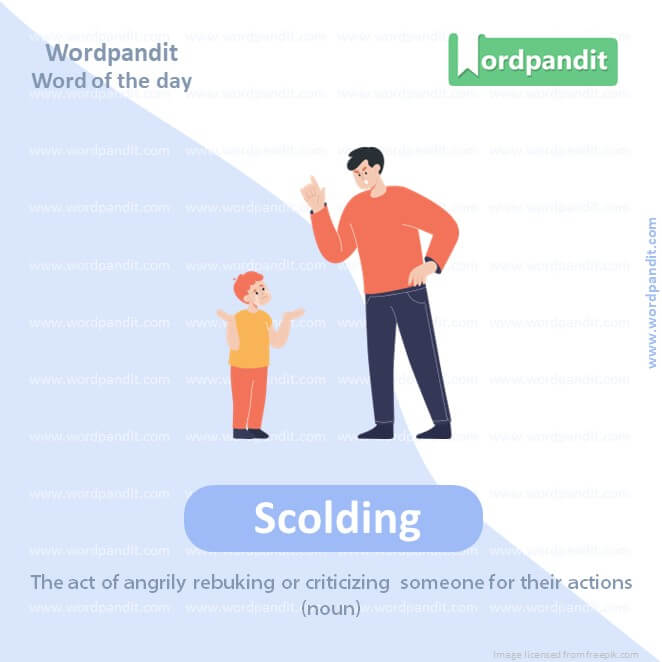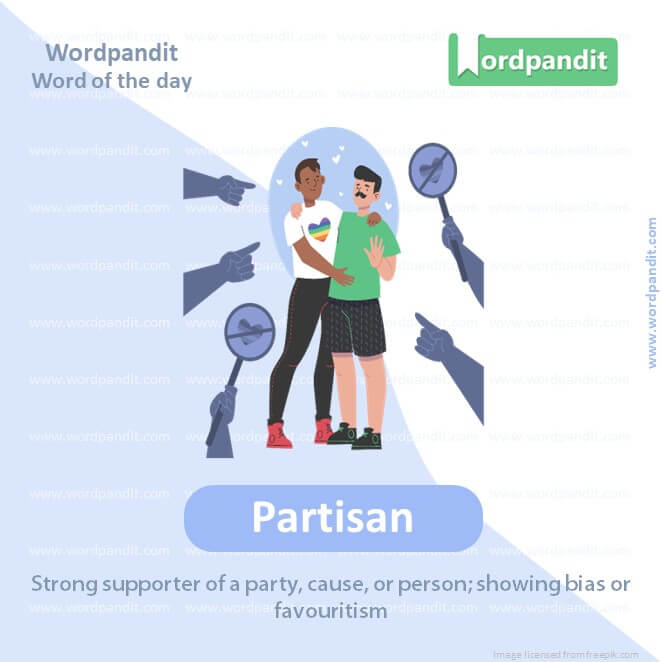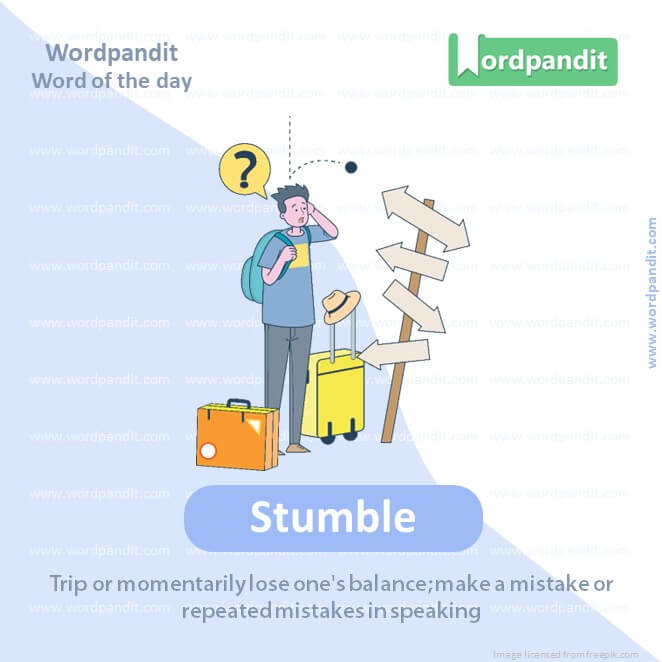Daily Vocabulary Words: Enhance Your Lexicon with Leading Newspapers & Publications
Welcome to the Daily Vocabulary section at Wordpandit!
Our mission is straightforward: to bring you essential vocabulary words featured in top newspapers and publications worldwide. By focusing on words you’ll encounter in renowned sources, we aim to help you enhance your vocabulary effectively and practically.
Our selection includes words from:
– The New York Times
– The Washington Post
– Scientific American
– BBC
– The Guardian
– Psychology Today
– Wall Street Journal
– The Economist
– The Hindu
– The Times of India
– The Economic Times
– Hindustan Times
– Live Mint
– The Indian Express
– And many more.
We are committed to your vocabulary development. Simply visit this section regularly and explore the daily posts. This is your go-to repository for commonly used words, providing significant practical benefits by familiarizing you with vocabulary from the leading publications listed above.
Make it a habit to visit our website daily and expand your lexicon with words from top newspapers and publications. (edited)

WORD-1: Scolding
CONTEXT: My favorite: scolding them for blowing up the bipartisan border-security deal because Trump called them up and told them he needed it as a campaign issue.
SOURCE: New York Times
EXPLANATORY PARAGRAPH: Imagine when you draw on the walls with crayons, and your mom or dad tells you that it’s not okay in a very firm and sometimes loud voice. That’s called a “scolding.” It’s when someone tells you that you did something wrong in a way that makes you understand you should not do it again.
MEANING: The act of angrily rebuking or criticizing someone for their actions (noun)
PRONUNCIATION: SKOHL-ding
SYNONYMS: reprimand, rebuke, admonishment, chastisement, lecture
USAGE EXAMPLES:
1. After breaking the vase, the child received a scolding from his parents.
2. The teacher gave a scolding to the students who did not complete their homework.
3. He remembered the scolding he got for coming home late.
4. A scolding tone is often used by parents to correct bad behavior.
WORD-2: Prodded
CONTEXT: Every moment when he poked and prodded and made fun of congressional Republicans.
SOURCE: New York Times
EXPLANATORY PARAGRAPH: Imagine someone gently poking you with their finger to get your attention or to make you move. When someone pokes or pushes you to encourage you to do something, that’s called being “prodded.”
MEANING: Poked or urged someone to do something (verb, past tense).
PRONUNCIATION: PROD-id
SYNONYMS: nudged, pushed, poked, prompted, urged
USAGE EXAMPLES:
1. She prodded him to wake up for school.
2. The coach prodded the team to give their best effort.
3. He prodded his friend to ask the question.
4. The mother prodded her child to finish their homework.
WORD-3: Invigorated
CONTEXT: He was relaxed, invigorated and visibly delighted.
SOURCE: New York Times
EXPLANATORY PARAGRAPH: Imagine feeling very tired and then drinking a glass of cold, refreshing juice. Suddenly, you feel awake and full of energy again. When something makes you feel full of energy and life, that’s called being “invigorated.”
MEANING: Given new energy or strength (verb, past participle).
PRONUNCIATION: in-VIG-uh-ray-tid
SYNONYMS: energized, revitalized, refreshed, rejuvenated, strengthened, revived
USAGE EXAMPLES:
1. The fresh air invigorated her after the long day indoors.
2. His speech invigorated the team before the big game.
3. She felt invigorated after a good night’s sleep.
4. The new exercise routine left him feeling invigorated.

WORD-4: Delighted
CONTEXT: He was relaxed, invigorated and visibly delighted.
SOURCE: New York Times
EXPLANATORY PARAGRAPH: Imagine getting a surprise gift that you really love. When someone feels very happy and pleased about something, they are “delighted.”
MEANING: Feeling very pleased, happy, or satisfied (adjective)
PRONUNCIATION: dih-LY-tid
SYNONYMS: pleased, happy, thrilled, overjoyed, elated, joyous, content
USAGE EXAMPLES:
1. She was delighted with her birthday present.
2. He felt delighted to hear the good news.
3. The children were delighted to meet the clown.
4. They were delighted by the beautiful fireworks display.
WORD-5: Anecdotes
CONTEXT: I agree with all three — I was, by then, hungry for specific policy proposals without the cheesy anecdotes or special guests.
SOURCE: New York Times
EXPLANATORY PARAGRAPH: Imagine telling a funny little story about something that happened to you at school. When someone shares a short and interesting story about a real incident or person, that’s called an “anecdote.”
MEANING: Short and amusing or interesting stories about real incidents or people (noun).
PRONUNCIATION: AN-ik-dohts
SYNONYMS: stories, tales, narratives, accounts, recollections, episodes, yarns
USAGE EXAMPLES:
1. He shared anecdotes from his travels around the world.
2. The book is full of humorous anecdotes.
3. She told an anecdote about her childhood.
4. His anecdotes kept the dinner party entertained.
WORD-6: Shrinkflation
CONTEXT: American frustrations and grievances, from the unfairness of the tax code to the horrors of prescription drug pricing, junk fees and shrinkflation.
SOURCE: New York Times
EXPLANATORY PARAGRAPH: Imagine buying a bag of chips that looks the same as always, but when you open it, there are fewer chips inside. When products get smaller or have less content but cost the same, that’s called “shrinkflation.”
MEANING: The process of items shrinking in size or quantity while their prices remain the same (noun).
PRONUNCIATION: SHRINK-flay-shun
SYNONYMS: product downsizing, stealth inflation, reduction in quantity, hidden inflation
USAGE EXAMPLES:
1. Shrinkflation has affected many food products, with smaller portions for the same price.
2. Consumers are noticing shrinkflation in their everyday grocery items.
3. The company faced backlash for its shrinkflation tactics.
4. Shrinkflation is a way for businesses to cope with rising costs without increasing prices.

WORD-7: Partisan
CONTEXT: He made a point of scoring partisan points, but the overall vibe was much less partisan than common-sense.
SOURCE: New York Times
EXPLANATORY PARAGRAPH: Imagine having a favorite sports team and always thinking they are the best, no matter what. When someone strongly supports one side or group, especially in politics, they are “partisan.”
MEANING: Strong supporter of a party, cause, or person; showing bias or Favouritism
PRONUNCIATION: PAR-ti-zun
SYNONYMS: biased, one-sided, sectarian, partial, prejudiced, loyal, supportive
USAGE EXAMPLES:
1. The debate turned partisan, with each side unwilling to listen to the other.
2. He is a partisan supporter of the new policy.
3. The news channel is often criticized for its partisan reporting.
4. Partisan politics can sometimes hinder cooperation.

WORD-8: Stumble
CONTEXT: Cottle No one stumble stood out. But he tried to jam so much in that he frequently went too fast, tripped over his words and ran them together in ways that made him hard to follow.
SOURCE: New York Times
EXPLANATORY PARAGRAPH: Imagine walking along and suddenly tripping over a rock. When you almost fall but manage to catch yourself, that’s called a “stumble.”
MEANING: Trip or momentarily lose one’s balance;make a mistake or repeated mistakes in speaking
PRONUNCIATION: STUM-buhl
SYNONYMS: trip, falter, slip, stagger, misstep, blunder, wobble
USAGE EXAMPLES:
1. She stumbled over a root on the trail.
2. He stumbled through his speech but managed to finish.
3. The toddler stumbled as he learned to walk.
4. The company stumbled upon a new market opportunity.
WORD-9: Flub
CONTEXT: Goldberg It’s a tie between Biden’s echo of right-wing language about “an illegal” accused of murder
and his flub about cheap prescription drugs in Moscow.
SOURCE: New York Times
EXPLANATORY PARAGRAPH: Imagine trying to sing a song but forgetting the words and singing the wrong ones instead. When you make a mistake, especially in something you’re trying to do well, that’s called a “flub.”
MEANING: A mistake or blunder, especially in performance or speech (noun).
PRONUNCIATION: FLUB
SYNONYMS: mistake, error, blunder, slip-up, mishap, goof, botch
USAGE EXAMPLES:
1. He made a flub during his presentation but quickly recovered.
2. The actor’s flub was edited out of the final scene.
3. She laughed off her flub and continued singing.
4. The comedian’s flub turned into a funny moment.
WORD-10: Emblazoned
CONTEXT: Marjorie Taylor Greene wore a MAGA hat and a T-shirt cynically emblazoned with “Say her name” and “Laken Riley,” in reference to a student killed in Georgia two weeks ago whom Republicans have used as a symbol of the border crisis.
SOURCE: New York Times
EXPLANATORY PARAGRAPH: Imagine seeing a big, bright logo on a t-shirt that everyone can see from far away. When something is decorated or displayed in a very noticeable way, it’s described as “emblazoned.”
MEANING: Conspicuously inscribed or displayed (verb, past participle).
PRONUNCIATION: em-BLAY-zund
SYNONYMS: decorated, adorned, displayed, inscribed, emblazoned, embellished, branded
USAGE EXAMPLES:
1. The team’s logo was emblazoned on their uniforms.
2. Her jacket was emblazoned with colorful patches.
3. The banner was emblazoned with the company’s name.
4. The car was emblazoned with advertisements.
Vocabulary Spelling
In the rich tapestry of language learning, getting the ‘vocabulary spelling’ right forms a significant thread. These spelled words or the arrangement of letters give each word its unique identity. However, understanding ‘vocabulary spelling’ proficiently needs an insightful and strategic approach.
Starting the journey of learning ‘vocabulary spelling’, one must focus on observing patterns. English language words often follow certain spelling rules or patterns. Recognizing these can simplify the learning process, offering a systematic way to appreciate ‘vocabulary spelling’.
The trick to ingraining ‘vocabulary spelling’ effectively lies in the power of repetition. Regularly writing words can help reinforce the spelling in your memory. To boost this, tools like spelling quizzes or flashcards with the word on one side and the spelling on the other can provide an engaging way to practice ‘vocabulary spelling’.
An unconventional yet powerful approach to remember ‘vocabulary spelling’ is by using mnemonic devices. For instance, connecting the word’s spelling with a catchy phrase or rhyming pattern can make recall easier.
Integrating technology with learning ‘vocabulary spelling’ has its unique benefits, too. Apps offer various exercises and tests that not only enhance memory but also make learning fun.
Importantly, the learning of ‘vocabulary spelling’ should be punctuated with regular revisions. This ensures the recalled spelling is correct and cements it in your long-term memory.
In a nutshell, mastering ‘vocabulary spelling’ requires keen observation, regular practice, innovative mnemonic tools, use of technology, and timely revisions. As you follow this comprehensive path, you strengthen your grasp over ‘vocabulary spelling’, paving the way to language proficiency. Remember, every word spelled correctly is a moment of triumph in the enthralling escapade of language learning!













